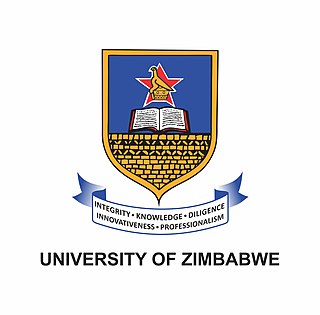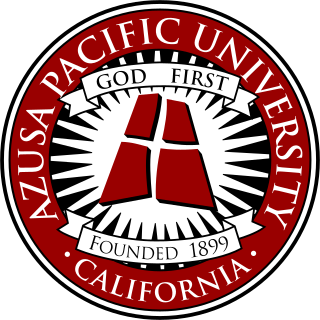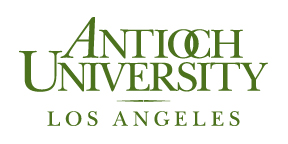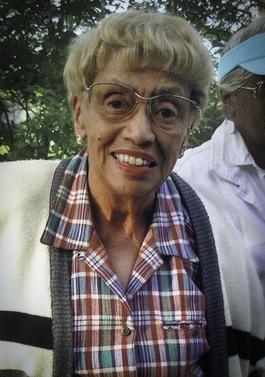
The University of Zimbabwe (UZ) is a public university in Harare, Zimbabwe. It opened in 1952 as the University College of Rhodesia and Nyasaland, and was initially affiliated with the University of London. It was later renamed the University of Rhodesia, and adopted its present name upon Zimbabwe's independence in 1980. UZ is the oldest university in Zimbabwe.

Pepperdine University is a private research university affiliated with the Churches of Christ with its main campus in Los Angeles County, California. Pepperdine's main campus consists of 830 acres overlooking the Pacific Ocean and the Pacific Coast Highway near Malibu, California. Founded by entrepreneur George Pepperdine in South Los Angeles in 1937, the school expanded to Malibu in 1972. Courses are now taught at a main Malibu campus, three graduate campuses in Southern California, a center in Washington, D.C., and international campuses in Buenos Aires, Argentina; London, United Kingdom; Heidelberg, Germany; Florence, Italy; and Blonay – Saint-Légier, Switzerland.

Azusa Pacific University (APU) is a private evangelical research university in Azusa, California. The university was founded in 1899, with classes opening on March 3, 1900, in Whittier, California, and began offering degrees in 1939. The university's seminary, the Graduate School of Theology, holds to a Wesleyan-Arminian doctrinal theology. APU offers more than 100 associate, bachelor's, master's, and doctoral programs on campus, online, and at seven regional locations across Southern California.
Maastricht University is a public research university in Maastricht, Netherlands. Founded in 1976, it is the second youngest of the thirteen Dutch universities.

California State University, Stanislaus is a public university in Turlock, Stanislaus County, California. It is part of the California State University system. It was established in 1957 and offers 45 bachelor's degree programs, 17 master's degree programs, one doctoral degree, and 6 teaching credentials. Stanislaus State is a Hispanic-serving institution.
American World University (AWU) is an unaccredited institution offering post-secondary education programs by distance learning. It has no physical campus. It awards academic degrees. In January 2000 American World University offered "all degrees" for $1,000 as a "New Years Special".
The UCLA School of Education and Information Studies is one of the academic and professional schools at the University of California, Los Angeles. Located in Los Angeles, California, the school combines two departments. Established in 1881, the school is the oldest unit at UCLA, having been founded as a normal school prior to the establishment of the university. It was incorporated into the University of California in 1919.
Maxine Klein Asher was an Atlantis researcher who founded and operated American World University, an institution which sold academic degrees, and the World Association of Universities and Colleges, an institution which "accredited" American World University, as well as other universities selling mail-order degrees which paid for accreditation by that body. Neither institution is accredited by any accrediting body recognized by the United States Department of Education.
Sequoia University was an unaccredited higher education institution in Los Angeles, California, which acquired a reputation as a prolific "degree mill" selling degree certificates. Although it was shut down in 1984 by a court order, it is most notable today as the institution from which Scientology founder L. Ron Hubbard obtained an honorary "Doctorate of Philosophy" in the 1950s.
Thomas James Kirk II operated several fraudulent higher education organizations, including LaSalle University in Mandeville, Louisiana, the University of San Gabriel Valley, and Bienville University. Kirk's "LaSalle University" was shut down in 1996 following a raid by the FBI. Kirk was indicted for tax fraud in 1996 and, after a plea agreement, was sentenced to five years in U.S. federal prison. Kirk later died in January 2008.

National College of Ireland (NCI) is a not-for-profit, state-aided third-level education institution in Dublin. It was founded in 1951 as a joint venture between the Jesuits in Ireland and Irish trade unions, and was originally named the Catholic Workers College, Dublin. It is now an independent higher education institution, offering full and part-time courses from undergraduate to postgraduate level, in the areas of business, computing, psychology and education.
Abraham Lincoln University (ALU) is a private, for-profit online university based in Glendale, California.
Unaccredited institutions of higher education are colleges, trade schools, seminaries, and universities which do not have formal educational accreditation.

California Southern University is a private, for-profit, university in Chandler, Arizona. California Southern University is currently a member of the American InterContinental University System. It offers associate's, bachelor's, master's and doctoral degree programs online in psychology, business and management, risk management and regulatory compliance, criminal justice, nursing, and education. It is owned by the for-profit company Perdoceo Education Corporation, publicly traded on the NASDAQ under PRDO and formerly known as Career Education Corporation (CEC).

Antioch University Los Angeles (AULA) is a campus of Antioch University in Culver City, California.

Texas A&M University–Central Texas is a public university in Killeen, Texas. It is one of the newest members of The Texas A&M University System. Founded in 1999 as a branch of Tarleton State University, it became an independent member of the Texas A&M University System in September 2009. A&M-Central Texas is an upper division college, meaning its students must complete their freshman and sophomore-level coursework at a two-year college or other institution of higher education. Texas A&M–Central Texas primarily serves non-traditional students: The average age of the student body is 34, 40% of students are affiliated with the US military, and most students attend part-time. Texas A&M–Central Texas' students are known as the Warriors, and the school colors are navy blue, maroon, and silver. The university has a main campus, an extension building in north Killeen, and a site location on the United States Army post at Fort Cavazos.

Jewel Plummer Cobb was an American biologist, cancer researcher, professor, dean, and academic administrator. She contributed to the field of cancer research by studying the cure for melanoma. Cobb was an advocate for increasing the representation of women and students of color in universities, and she created programs to support students interested in pursuing graduate school.

Kharazmi University [Former Name: Tehran University of Teacher Training ] is a major public research university in Iran, KHU named after Khwarizmi, Persian mathematician, astronomer and geographer, offering a wide range of undergraduate and postgraduate programs in a variety of disciplines. KHU is considered as the oldest institution of higher education in Iran. It was established in 1919 as the Central Teachers' Institute and gained university status as Tarbiat Moallem University of Tehran in 1974. It changed its name to Kharazmi University on January 31, 2012.
The College of Education is one of 15 colleges at The Pennsylvania State University, located in University Park, PA. It houses the departments of Curriculum and Instruction, Education Policy Studies, Learning and Performance Systems, and Educational Psychology, Counseling, and Special Education. Almost 2,300 undergraduate students, and nearly 1,000 graduate students are enrolled in its 7 undergraduate and 16 graduate degree programs. The college is housed in four buildings: Chambers, Rackley, Keller, and CEDAR Buildings.










